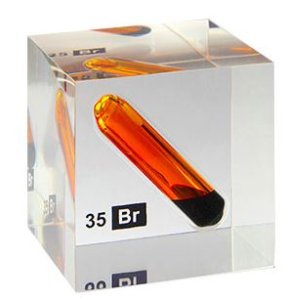FREE Standard Shipping On All Orders $100 or More!*
Bromine Use on Outdoor Pools?
Q: Can I use Bromine on my Outdoor Pools?

The question above ("Can I use Bromine") came from a manager of several outdoor pools in Northern Virginia. Over the summer, their accountants had raised a flag, shocked at the chemical expenses this year, and suggested the company begin to look for alternatives.
One of them undoubtedly stumbled across Bromine online, and noticed that Bromine has some distinct advantages over chlorine for pool and spa sanitation.
- Bromamines continue to be ready sanitizers, unlike chloramines
- Bromamines don't gas-off the surface as readily as chloramines
- Bromine is pH balanced, unlike very high pH of liquid chlorine
- Bromine remains stable at higher temperatures
- Bromide ions can be activated into Free Bromine, by shocking
- Bromine is gentler than chlorine on the skin, hair and eyes
...OK, but Can I use Bromine in Swimming Pools?
A: Yes, with the following Caveats
- Bromine cannot be stabilized from the sun, and slowly depletes in bright sunshine
- Bromine is more expensive, expect to pay 25% more than chlorine sticks
- Bromine must be dispensed in a brominator, and never in a used chlorinator
Bromine tablets are a good option for indoor pools or outdoor pools with automatic covers or solar blankets. Pools which receive little sunlight during the day could also be a good candidate.
Bromine doesn't burn off as fast in the sun as unstabilized chlorine, due to its lower molecular activity. If your pool is shaded for most of the day, with just 1-2 hours of direct sun, you may not notice much sunlight degradation.
Shocking a Bromine Pool: Shocking for the removal of bromamines is not needed under most circumstances, however, all swimming pools should be shocked periodically for the removal of bacteria and break down of contaminants. Shocking a bromine pool is done the same way as a normal pool, only you needn't worry about 'breakpoint chlorination'. Chlorine shock or non-chlorine shock can be used.
An interesting thing happens when you shock a bromine pool. The addition of hypochlorous acid reactivates bromide ions, converting them into bromine. Once you build a bank of bromide in your pool, you can continuously reactivate it, and it begins to take fewer bromine tablets to maintain your residual.
Speaking of residual, bromine pools test at a higher level of bromine than chlorine pools. This is due to the weight of bromine being twice as heavy as chlorine, so when using a chlorine test kit (DPD or OTO), the equivalent measures are given. Generally, a 2-4 ppm residual of bromine is sufficient. It's not that there's twice as much bromine in the water, but that it tests differently than chlorine.
Use Bromine Tablets for:
- Indoor Pools and Enclosed Pools.
- Pools with automatic covers or (blue) solar blankets.
- Pools that receive less than 2 hours per day of direct sunlight.
Spas and Hot Tubs, covered most of the time, should use bromine. One should never use pool chlorine tablets in a spa or hot tub.